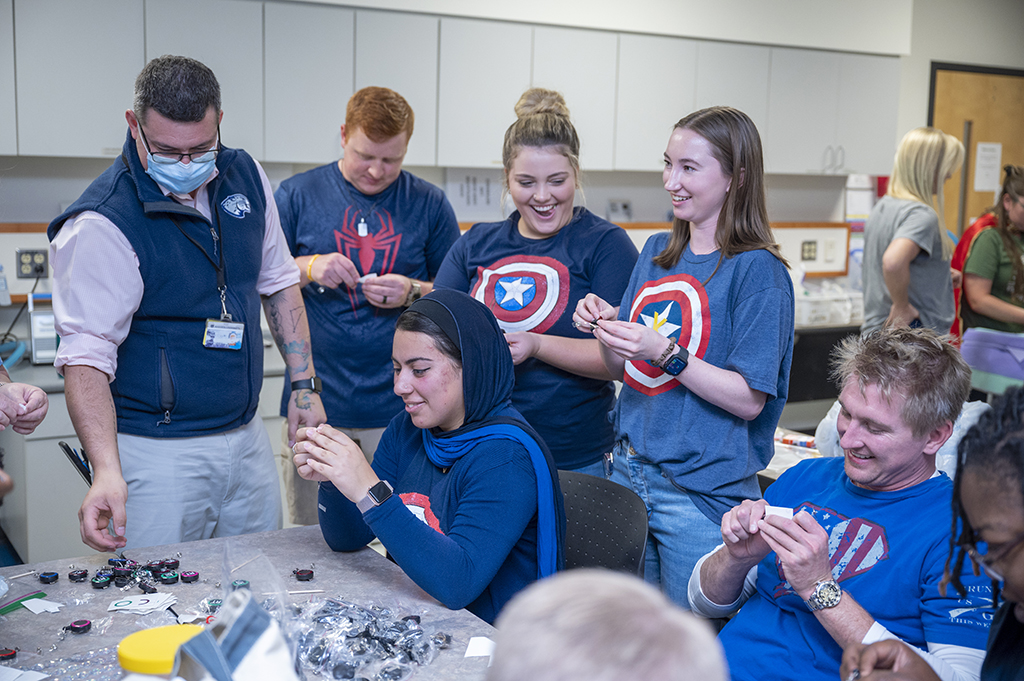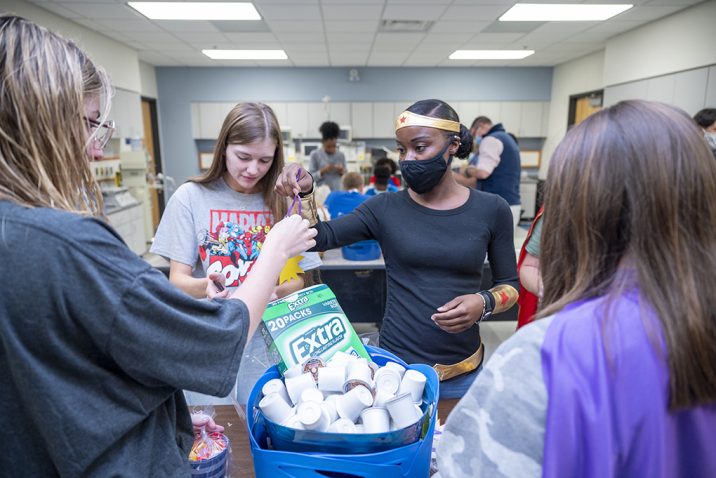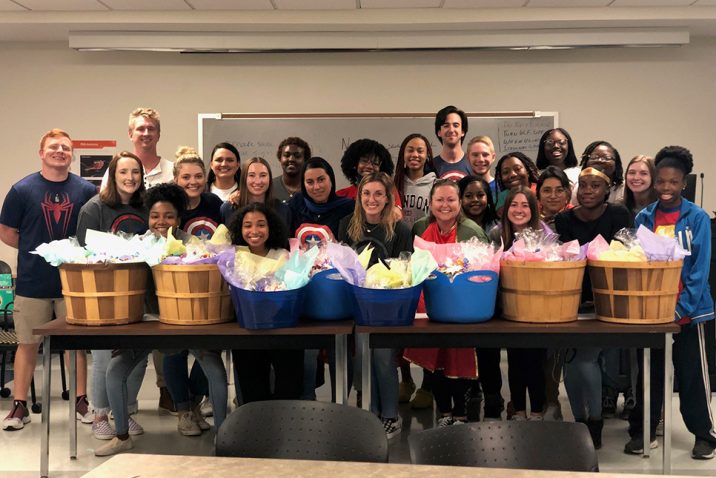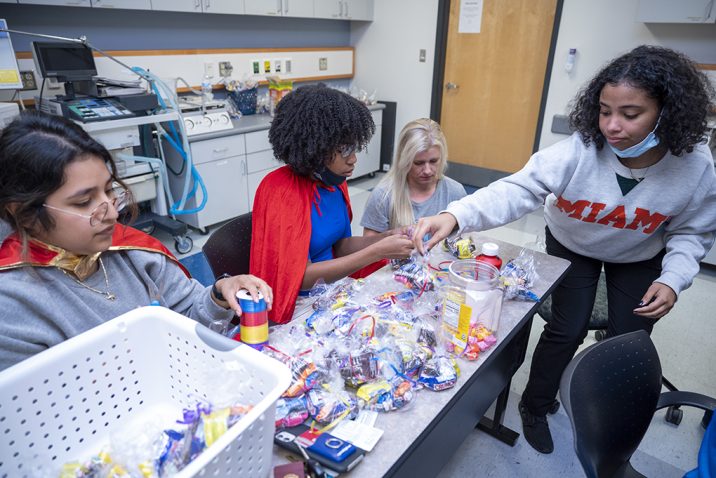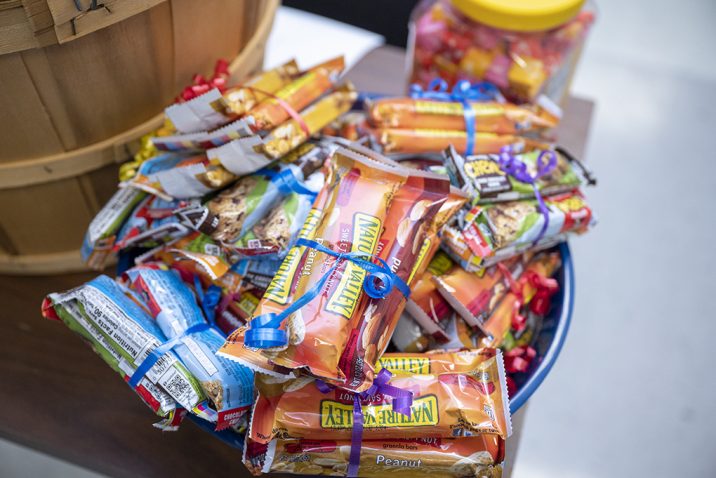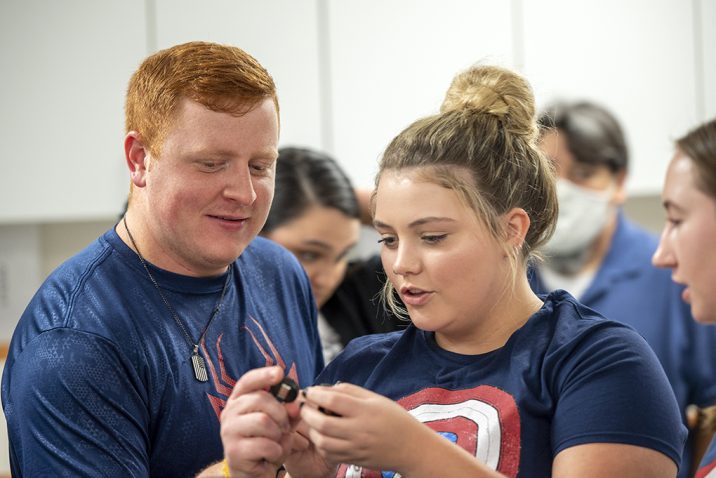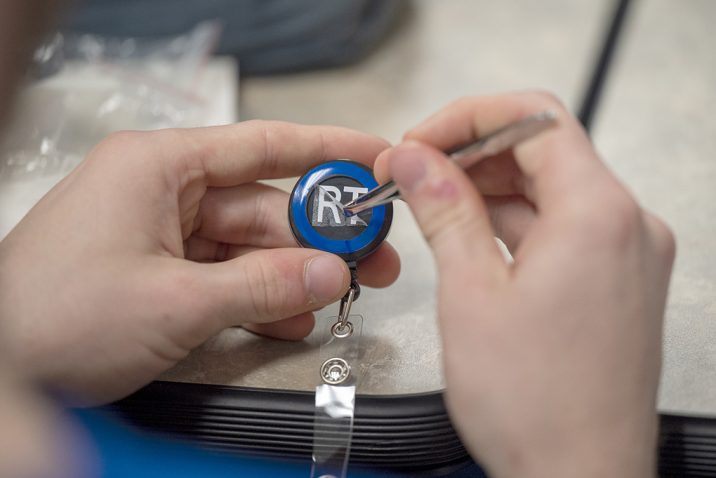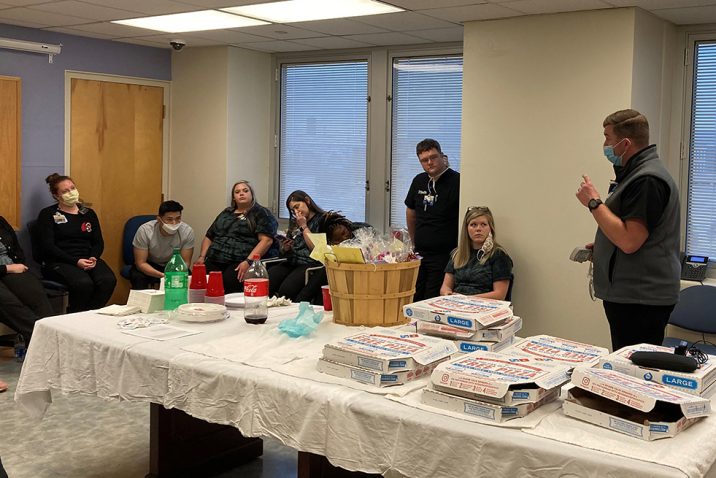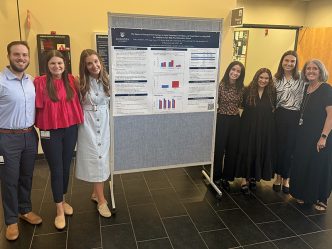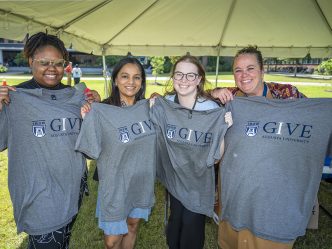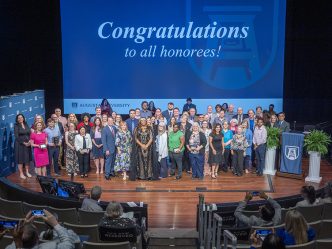Augusta University respiratory therapy students presented gift baskets to RT departments at Augusta University Medical Center, Select Specialty, Doctors Hospital and University Hospital on Oct. 28 to celebrate Respiratory Care Week.
For more than a year, respiratory therapists have been on the front lines helping patients combat COVID-19, working countless hours away from loved ones while putting their lives on the line, according to the American Association for Respiratory Care. This week highlights and acknowledges the hard work RTs do.
While Augusta University’s RT students assembled the baskets on Monday, Leslie Ford, assistant professor and director of clinical education, looked around and smiled.
“I am so proud of the RT students for taking the initiative to recognize and honor the frontline RTs in our local community,” Ford said.
Jennifer Anderson, director of respiratory care services at AUMC, said the students taking the time to recognize, especially during Respiratory Care Week, means a lot to the hospital. She also said she’s looking forward to some of the students joining the department after graduation.
“The majority of our staff here at AU graduated from that program … I’m an alumna from 1980 and I’ve taught in the program,” Anderson said. “It’s a wonderful partnership. Our staff acts as a clinical instructor for the team; we have adjunct faculty privileges and we work with the students every day. The students are well trained and they come exceptionally prepared to care for the sickest of patients. As a neonatal intensive care Level 4 and a Level 1 Trauma Center, we really need to have these highest highly trained professionals to join us in the future.”
Andrew Singleton, vice president of the Class of 2022, said the idea to make gift baskets, which contained N95 masks, candy and gum, coffee, badge reels, granola bars and words of encouragement, was a collective idea that was embraced by all.
“We all kind of wanted to give back to the hospital … they just do so much for us,” Singleton said. “So as a class we came together and we were trying to think of things we could do for the hospitals and just show them our appreciation.”
Singleton said he made the decision to study RT when he was in high school. He had several family members that were in the hospital, and during that time he discovered the different positions in the hospital. He said he found out what an RT was for “not so very good reasons” and it caused him to look into the career.
“I looked into Augusta University and found they have one of the most renowned programs around … it just made me want to go here,” he said. “As a respiratory therapist, we can be hands on and work behind the scenes, being able to work one on one with a patient.”
Junior Elaine Kise was originally going to study nursing, but really liked the specialty of RTs and how in-depth they go with each system in the body.
She mentioned most of her classmates, as well as herself, faced similar instances as Singleton where a loved one faced a medical condition that drove them into the medical field.
“My father actually has congestive heart failure, and it was just something that hit home for me to go into this field and to be able to understand what’s going on with his therapies and things like that,” Kise said.
Kise and Singleton both emphasized the importance of recognizing RTs during Respiratory Care Week, with Kise saying, “If you can’t breathe you’re not living so … being able to help these people with their respiratory issues is vital to the medical field.”
“It’s very important for the therapists [to support them], especially the ones that are working in the hospitals right now … there’s a lot of death going on with COVID,” Singleton said.
“They’re working extra hours and to just be able to give back and pay respect to them. A lot of people in the hospital that have even been dealing with us as students, they’ve been allowing us to still come to the hospital and still be taught by them, even with the times being like they are. So we really appreciate that and we do know that they need to be rejuvenated and we just need to show them our appreciation.”
Dr. Nicola Zetola, associate professor and director of medical intensive care unit, said he “can’t imagine a group of people working in the hospital that deserves (the recognition the) most.”
“The respiratory therapists together, with the nurses, have been a true frontline in the fight against COVID,” Zetola said. “They are the ones that deserve most, if not all the credit for the improved outcomes and great success that we have had in the management of this very serious condition. They are very cohesive and a wonderful group of people, not just professionally but personally in terms of the quality of each one of them. The group has gone way beyond what was expected from them, not just in terms of patient care, but education and support to the rest of the team. The respiratory therapists make time to educate and make (the medical students) feel as part of the team, involved with them and sharing their experience, which is tremendously valuable for their education.”
Ford acknowledges the hard work the students have done, but is also appreciative of the four hospitals for taking the time to mentor and encourage the students.
“Our local RTs have worked many long and challenging shifts caring for high-acuity patients, including COVID-19 patients. They have been faced with physical and emotional exhaustion on a whole new level during this pandemic. Yet they recognize the importance of investing in the future generation of RTs. I am so thankful to them for sharing their time and talent with our students, even during this exceptionally stressful period,” Ford said.
 Augusta University
Augusta University
